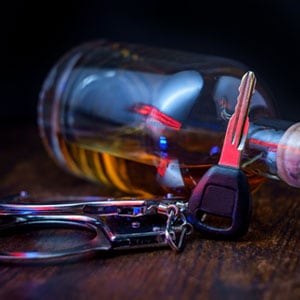
In this article, you can discover…
- What to do immediately after a DWI arrest in Texas.
- Factors that impact the severity of your charges.
- The role of an ALR hearing in retaining your driving privileges.
What Blood Alcohol Concentration Levels Can Result In A DWI Charge In Texas?
A blood alcohol concentration (BAC) of 0.08 or above is considered legally intoxicated in the State of Texas. Authorities could also arrest you if your BAC is lower than 0.08%, yet your driving shows signs of impairment.
What Aggravating Factors Enhance Penalties In Texas DWI Charges?
Driving with a 0.15% or higher BAC immediately enhances your first DWI charge to a class A (as opposed to a usual class B) misdemeanor and can land you in county jail for up to one year and/or a fine of up to $4,000. If you have a previous DWI conviction, a second DWI arrest will be charged as a class A misdemeanor, regardless of your BAC.
Class B misdemeanors can land you in county jail for up to six months and/or a fine of up to $2,000.
If you have two previous DWI convictions, a third arrest will be charged as a third-degree felony. Third degree felonies can land you in prison for two to 10 years and/or a fine of up to $10,000.
A second DWI arrest can bring with it the same penalties as a third or more if your initial DWI incident accidentally ended someone’s life.
Driving with a child who is 15 years old or younger while intoxicated is a state jail felony and can land you in state jail for no less than six months up to two years and/or a fine of up to $10,000.
What Steps Should I Take Immediately After A DWI Arrest In Texas?
While it may be difficult to remember to do this in the confusion of an arrest, be sure to reach out to a lawyer who handles DWI’s for help and representation as soon as possible.
You should also reach out to the State Office of Administrative Hearings in Texas. Be sure to request an Administrative License Revocation (ALR) hearing with them within 15 days of your arrest, otherwise your license will be immediately suspended. If you or your lawyer request the hearing within 15 days, your license will not be immediately suspended. Instead, no action will be taken on your license until after your ALR hearing. Additionally, specific steps are required in order to ensure the arresting officer is properly subpoenaed to appear at the hearing to answer questions about the arrest.
How long could you lose your license? Blowing a 0.08% or higher will cost you your license for at least 90 days. Refusing a breathalyzer test will cause a license to be suspended for at least 180 days.
Do I Need To Attend The ALR Hearing?
While each case is independently evaluated, a skilled lawyer who regularly handles DWI’s will be able to appropriately advise you to attend not to attend. Yes, that is correct, you do have an option. Attending the ALR hearing yourself may cause you to be questioned and forced to answer damaging questions from the administrative law judge (ALJ) hearing your case. Unlike a criminal case, this is a civil matter, and you may not be able to plead the Fifth Amendment right against self-incrimination if you are asked uncomfortable questions which will later be used against you.
Rather, the ALR hearing is an opportunity for your lawyer to question the arresting officer, and this process can help you retain your license if the officer’s statements do not stand up well to questioning. Additionally, it can help your attorney lock in the officer in her/his testimony since the officer will be placed under oath. By locking in the officer’s testimony, s/he cannot later change it without losing credibility. This drastically helps the pending criminal charge.
This is something I have ample experience with, and my skill in handling these civil hearings often allows me to win back driving privileges for my clients. In addition to making a stronger case to defend when it comes time to face the criminal court.
Even if you are not successful at your ALR hearing, you may still request a temporary occupational license that allows you to drive to and from home, school, work, and for normal household duties such as going to the supermarket.
For more information on Understanding The Basics Of DWI In Texas, an initial consultation is your next best step. Get the information and legal answers you are seeking by calling (956) 513-1117 today.
